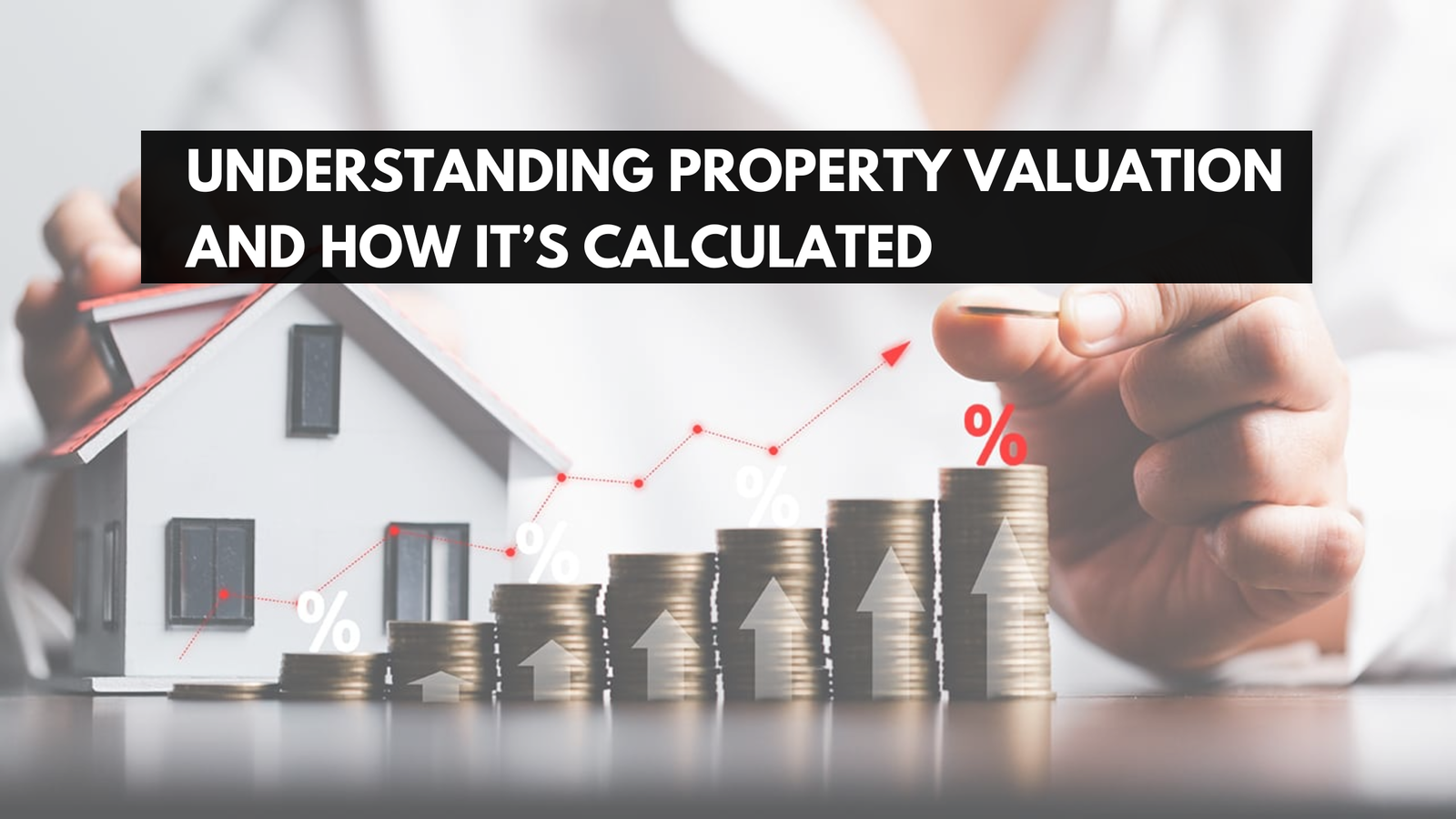Property valuation is one of the most crucial aspects of real estate. Whether you’re buying, selling, investing, or taking a loan against property, understanding how property valuation works helps you make smarter financial decisions. In India’s growing real estate market, where property prices fluctuate based on location, amenities, and demand, knowing how the value of a property is determined gives you a significant advantage.
In this blog, we’ll break down the concept of property valuation, explore the major factors that influence it, and explain the methods used to calculate a property’s worth in today’s real estate market.
What Is Property Valuation?
Property valuation refers to the process of estimating the current market value of a property — residential, commercial, or land. It’s not just about the price someone is willing to pay; it’s about determining the fair value based on data, market trends, and specific property characteristics.
Professional valuers, banks, and developers often use valuation reports for various purposes such as property transactions, taxation, insurance, or financing.
For example, before purchasing a new apartment or villa from a reputed builder like Vinayak Group, a property valuation can help you assess whether the quoted price matches the market standard.
Why Property Valuation Matters
Property valuation plays a key role in several areas of real estate, including:
- Buying and Selling: It ensures both buyers and sellers make fair deals.
- Home Loans: Banks use valuations to determine loan amounts.
- Taxation: Property taxes and stamp duties are based on property value.
- Investment Decisions: Investors use valuation to gauge ROI potential.
- Insurance: The insured value is calculated based on property valuation.
Understanding how valuation works helps you avoid overpaying or underselling your asset, ensuring financial transparency in every transaction.
Factors That Influence Property Valuation
A property’s value isn’t random — it’s determined by a mix of physical, legal, and market-based factors. Here are the most important ones:
1. Location
Location is the heart of property valuation. Properties in prime or developing areas like city centers, near schools, hospitals, and transportation hubs usually have higher values.
For example, Vinayak Group’s residential projects in Prayagraj have witnessed steady appreciation because of their strategic locations and modern infrastructure.
2. Property Size and Layout
The size of the property, built-up area, and layout design significantly affect valuation. A well-planned layout with optimal space utilization can command a higher price than a poorly designed one, even if both have the same area.
3. Age and Condition
Newer buildings usually have higher valuations since they require less maintenance and are built with modern materials. However, older properties located in high-demand areas can still retain high value if they’re well-maintained or renovated.
4. Construction Quality and Amenities
The quality of materials used, finishing standards, and availability of amenities like lifts, security, power backup, and parking all contribute to valuation. Properties in gated communities with facilities like a clubhouse, swimming pool, or landscaped gardens are often priced higher.
5. Market Trends
Real estate values fluctuate with economic and market trends. Demand and supply in the region, government policies, infrastructure developments, and interest rates all influence market valuation.
6. Legal Status and Documentation
A property with clear titles, legal approvals, and updated documentation always has a higher market value. Any dispute or pending approval can bring down the valuation drastically.
7. Infrastructure Development
Proximity to metro lines, highways, business centers, and ongoing infrastructure projects can significantly boost property value. For instance, a property near the Vinayak City Project benefits from enhanced connectivity and modern urban development.
Common Methods of Property Valuation
There isn’t just one way to calculate property value. Experts use different valuation methods based on property type and purpose. Let’s explore the most common ones used in India.
1. Comparative Market Analysis (CMA)
This is the most common valuation method for residential properties. It involves comparing the property with similar ones recently sold in the same locality. Factors like size, location, and amenities are considered to arrive at an estimated value.
For instance, if a 3BHK apartment in your area recently sold for ₹80 lakhs, your similar-sized apartment may be valued around that range, adjusted for specific features or condition.
2. Income Approach
Used mostly for commercial properties and rental income assets, this method calculates valuation based on the property’s ability to generate income. The expected rental yield or return on investment (ROI) is used to estimate market value.
Formula:
Property Value = (Net Annual Rental Income / Capitalization Rate)
3. Cost Approach
This method estimates the value of the property based on the cost to build it from scratch, minus depreciation. It’s useful for newly constructed or under-construction properties.
Formula:
Property Value = Cost of Land + (Construction Cost – Depreciation)
4. Residual Method
Used primarily for development projects, this method calculates property value based on the potential sale value of a developed project after deducting the cost of land and construction. Builders and developers like Vinayak Group often use this method to plan new residential or commercial projects.
5. Belting Method
This method applies to large land parcels, especially along main roads. The land is divided into different “belts” based on their distance from the main road, and each belt is assigned a different value per square meter. The final valuation is the combined total.
Steps Involved in Property Valuation
Here’s how a professional valuer typically calculates a property’s value:
- Physical Inspection: Assessing the property’s condition, structure, and location.
- Document Verification: Checking ownership titles, approvals, and legal clearances.
- Market Analysis: Comparing similar properties sold recently in the area.
- Calculation Using Valuation Method: Applying suitable methods like cost or income approach.
- Final Valuation Report: A detailed report mentioning property value, influencing factors, and supporting data.
How Buyers and Sellers Can Use Property Valuation
Property valuation is not just for banks or builders — it’s a practical tool for both buyers and sellers.
- For Buyers: It helps you avoid overpaying and choose a property that offers the best value for money.
- For Sellers: It helps set a realistic selling price based on current market trends.
- For Investors: It guides investment decisions and identifies high-growth areas.
- For Homeowners: It helps in evaluating asset worth for loans or future resale.
Before making any property transaction, it’s wise to get a professional valuation done. If you’re exploring new homes or investment options, visit Vinayak Group’s Real Estate Projects to explore modern properties that balance luxury, location, and long-term value.
Government Guidelines and Valuation Rates in India
In India, the government also sets circle rates or guideline values for properties in each area. These rates serve as a baseline for property registration and taxation. However, market values are often higher than circle rates, depending on demand and amenities.
When buying or selling property, it’s essential to consider both — the circle rate (for legal and tax compliance) and the market rate (for actual value assessment).
Final Thoughts
Property valuation is the foundation of smart real estate decisions. Whether you’re purchasing your first home, investing in a luxury apartment, or selling your existing property, understanding how valuation is done empowers you to negotiate better and make informed choices.
If you’re looking for well-planned residential or commercial projects that offer excellent location benefits and long-term appreciation, explore the premium developments by Vinayak Group. Their focus on design, quality, and transparency ensures every property delivers exceptional value — today and for the years to come.




